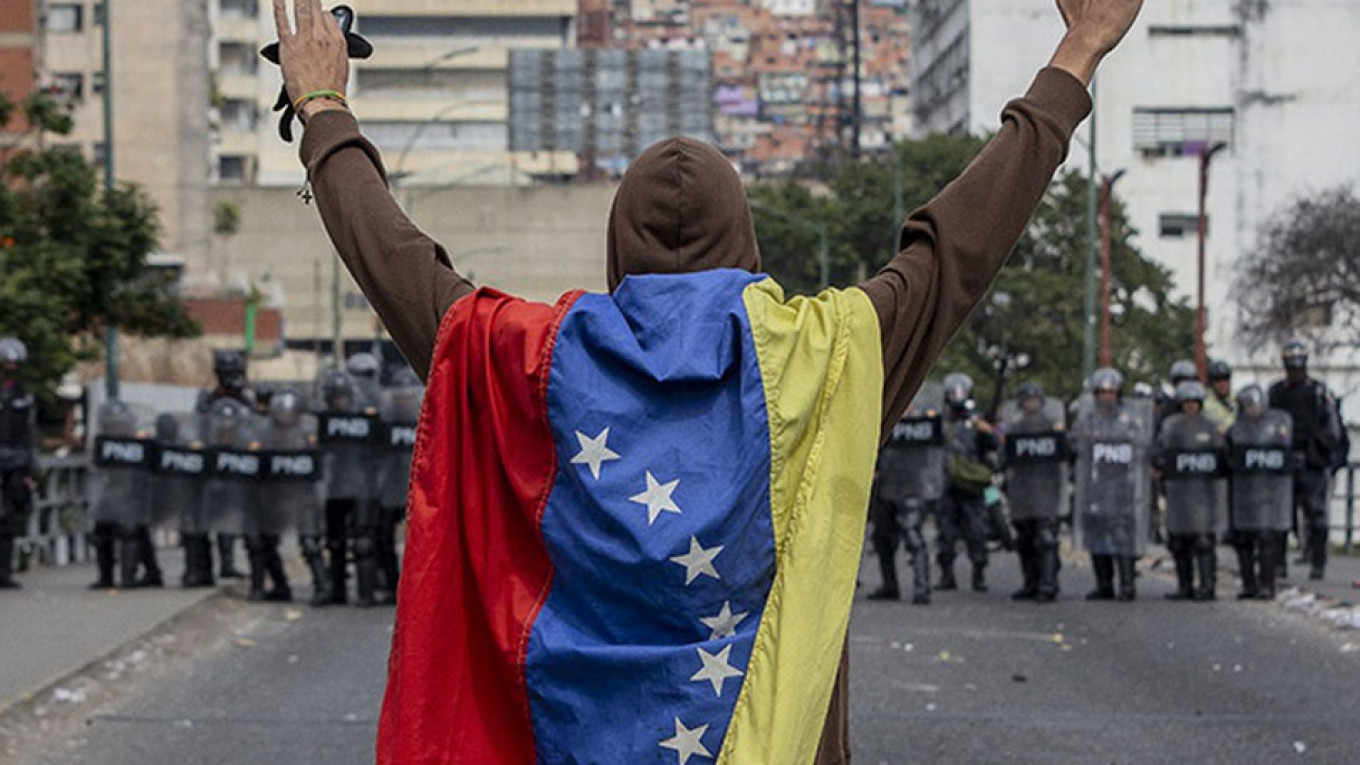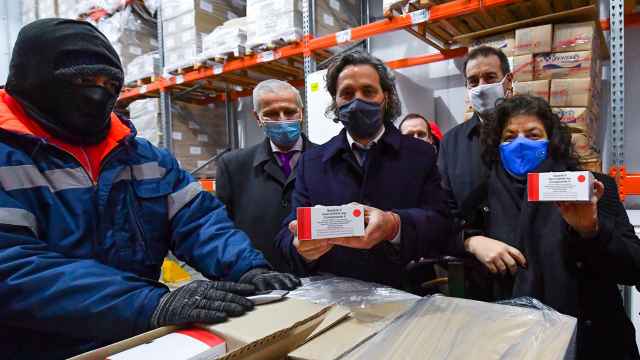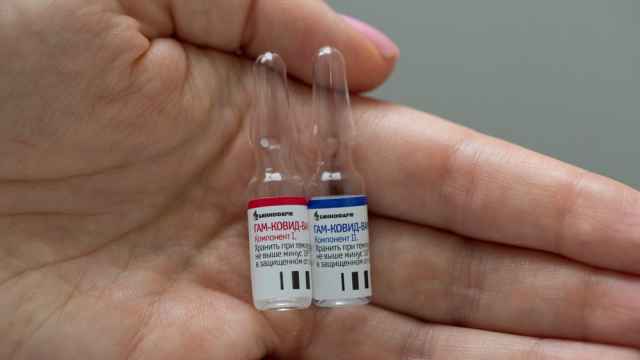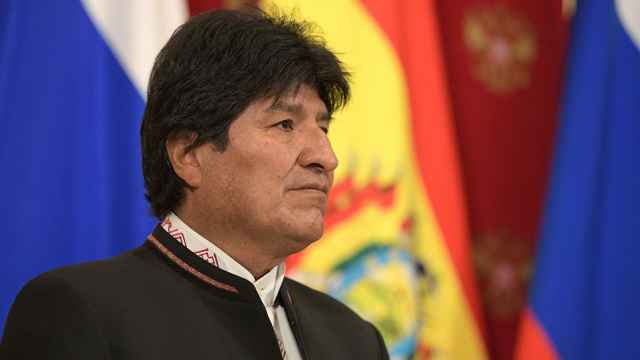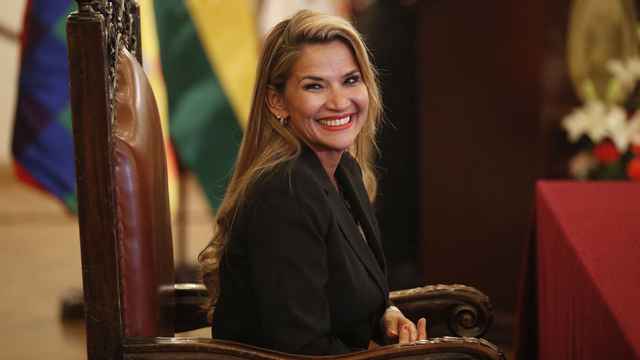Private military contractors who do secret missions for Russia flew into Venezuela in the past few days to beef up security for President Nicolas Maduro in the face of U.S.-backed opposition protests, according to two people close to them.
A third source close to the Russian contractors also told Reuters there was a contingent of them in Venezuela, but could not say when they arrived or what their role was.
Russia, which has backed Maduro's socialist government to the tune of billions of dollars, this week promised to stand by him after opposition leader Juan Guaido declared himself president with Washington's endorsement.
It was the latest international crisis to split the global superpowers, with the United States and Europe backing Guaido, and Russia and China urging non-interference.
Yevgeny Shabayev, leader of a local chapter of a paramilitary group of Cossacks with ties to Russian military contractors, said he had heard the number of Russian contractors in Venezuela may be about 400.
But the other sources spoke of small groups.
Russia's Defence Ministry and Venezuela's Information Ministry did not respond to requests for comment about the contractors. But Kremlin spokesman Dmitry Peskov said: "We have no such information."
The contractors are associated with the so-called Wagner group whose members, mostly ex-service personnel, fought clandestinely in support of Russian forces in Syria and Ukraine, according to Reuters interviews with dozens of contractors, their friends and relatives.
A person believed to work for the Wagner group did not respond to a message asking for information.
Citing contacts in a Russian state security structure, Shabayev said the contingent flew to Venezuela at the start of this week, a day or two before opposition protests started.
Cuba connection?
He said they set off in two chartered aircraft for Havana, Cuba, from where they transferred onto regular commercial flights to Venezuela. The Cuban government, a close ally of Venezuela's ruling socialists for the last two decades, did not immediately respond to a request for comment.
The contractors' task in Venezuela was to protect Maduro from any attempt by opposition sympathisers in his own security forces to detain him, Shabayev said.
"Our people are there directly for his protection," he said.
Venezuelan authorities said they had put down an attempted revolt on Monday by rogue military officers about a kilometre from the presidential palace in Caracas.
Maduro, the 56-year-old successor to Hugo Chavez, only takes to the streets in carefully-controlled situations, since crowds have barracked him in the past.
One of the two anonymous Russian sources, who is close to the Wagner group and fought in foreign conflicts where it was active, said the contractors first arrived in advance of the May 2018 presidential election, but another group arrived "recently."
Asked if the deployment was linked to protecting Maduro, the source said: "It's directly connected." The contractors flew to Venezuela not from Moscow but from third countries where they were conducting missions, he added.
The third source, who is close to the private military contractors, said there was a contingent in Venezuela but he could not provide further details.
"They did not arrive in a big crowd," he said.
Publicly-available flight-tracking data has shown a number of Russian government aircraft landing in or near Venezuela over past weeks, though there was no evidence the flights were connected to military contractors.
A Russian Ilyushin-96 flew into Havana late on Wednesday after starting its journey in Moscow and flying via Senegal and Paraguay, the data showed.
The aircraft, a civilian jet, is owned by a division of the Russian presidential administration, according to a publicly-available procurement contract relating to the plane.
Between Dec. 10 and Dec. 14 last year, an Antonov-124 heavy cargo aircraft, and an Ilyushin-76 transport aircraft, carried out flights between Russia and Caracas, flight-tracking data showed. Another Ilyushin-76 was in Caracas from Dec. 12 to Dec. 21 last year. All three aircraft belong to the Russian air force, according to the tracking data.
A Message from The Moscow Times:
Dear readers,
We are facing unprecedented challenges. Russia's Prosecutor General's Office has designated The Moscow Times as an "undesirable" organization, criminalizing our work and putting our staff at risk of prosecution. This follows our earlier unjust labeling as a "foreign agent."
These actions are direct attempts to silence independent journalism in Russia. The authorities claim our work "discredits the decisions of the Russian leadership." We see things differently: we strive to provide accurate, unbiased reporting on Russia.
We, the journalists of The Moscow Times, refuse to be silenced. But to continue our work, we need your help.
Your support, no matter how small, makes a world of difference. If you can, please support us monthly starting from just $2. It's quick to set up, and every contribution makes a significant impact.
By supporting The Moscow Times, you're defending open, independent journalism in the face of repression. Thank you for standing with us.
Remind me later.


